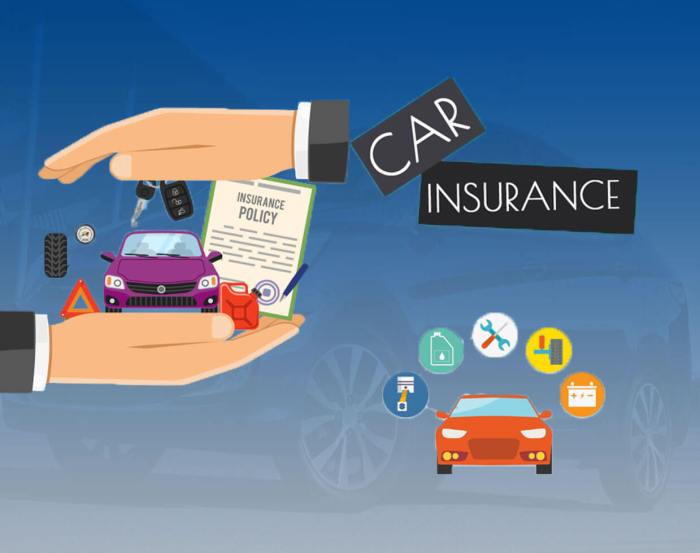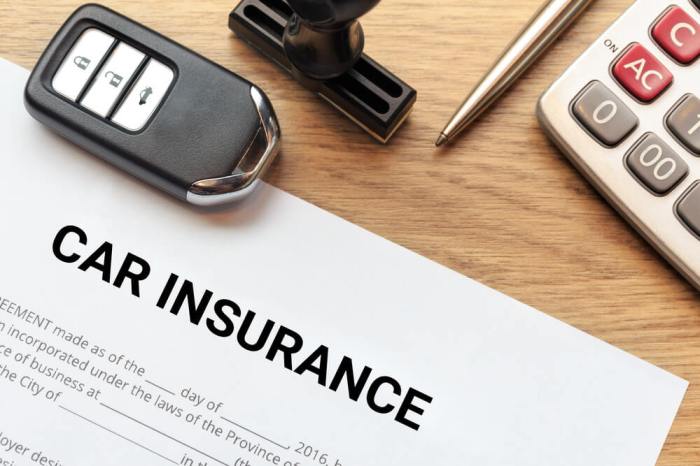Venturing through the enchanting landscapes of Ireland in a rental car offers a liberating experience, unlocking the freedom to explore hidden gems and embrace spontaneous adventures. However, securing the appropriate rental car insurance is paramount to ensure a stress-free and protected journey.
This comprehensive guide delves into the intricacies of rental car insurance in Ireland, empowering you with the knowledge to make informed decisions and safeguard your travel experience.
Navigating the complexities of rental car insurance can be daunting, but with careful consideration and informed choices, you can ensure peace of mind behind the wheel. From understanding coverage options and comparing prices to assessing your individual needs and choosing the right level of coverage, this guide provides a roadmap to securing the optimal rental car insurance for your Irish adventure.
Understand Rental Car Insurance Coverage Options in Ireland
To navigate Ireland’s roads with peace of mind, it’s crucial to grasp the nuances of rental car insurance coverage. From Collision Damage Waiver (CDW) to Super Collision Damage Waiver (SCDW), this guide demystifies the various insurance options, their coverage limits, and exclusions, empowering you to make informed decisions.
Types of Rental Car Insurance Coverage in Ireland
The insurance landscape for rental cars in Ireland offers a range of coverage options, each tailored to specific needs and risk tolerance. Understanding these options is the first step towards securing adequate protection.
- Collision Damage Waiver (CDW): CDW is a fundamental insurance coverage that shields you from financial liability in case of accidental damage to the rental vehicle. It typically comes with a deductible, which is the maximum amount you’ll be responsible for paying in the event of a claim.
- Super Collision Damage Waiver (SCDW): SCDW takes CDW a step further by reducing or eliminating the deductible associated with CDW. This comprehensive coverage provides peace of mind by minimizing your financial exposure in case of an accident.
- Theft Protection: Theft Protection safeguards you against financial losses incurred due to theft of the rental car. It’s worth noting that this coverage may have specific terms and conditions, such as requiring you to report the theft promptly to the rental company and local authorities.
- Personal Accident Insurance (PAI): PAI provides coverage for medical expenses and other costs associated with injuries sustained by the driver and passengers in the rental car during an accident. It’s designed to complement your existing health insurance and offer an additional layer of protection.
- Supplemental Liability Insurance (SLI): SLI extends your liability coverage beyond the limits provided by the rental company’s standard insurance policy. This additional coverage can be particularly valuable if you’re concerned about potential lawsuits or claims arising from an accident.
Importance of Understanding Terms and Conditions
While choosing the right insurance coverage is crucial, it’s equally important to thoroughly review the terms and conditions of the insurance policy. This includes understanding the specific coverage limits, exclusions, and any additional fees or charges that may apply. By carefully reading the policy, you can ensure that you’re fully aware of your rights and responsibilities as a renter.
Compare Rental Car Insurance Prices

To find the best deal on rental car insurance in Ireland, it’s essential to compare prices from different providers. Several factors can affect the cost of rental car insurance, including the type of vehicle, the duration of the rental, and the driver’s age.
It’s also important to understand the different types of rental car insurance coverage available and to choose the coverage that best meets your needs. Once you have a good understanding of your coverage options and the factors that affect the cost of rental car insurance, you can start comparing prices from different providers.
Research and Compare Providers
Begin by researching and comparing prices from various rental car companies and insurance providers. Several online comparison websites allow you to enter your trip details and receive quotes from multiple providers simultaneously. This makes it easy to compare prices and coverage options side by side.
Consider Coverage Options
When comparing prices, consider the different types of coverage options available. The most common types of coverage include:
- Collision Damage Waiver (CDW): This coverage protects you against damage to the rental car.
- Loss Damage Waiver (LDW): This coverage protects you against theft of the rental car.
- Personal Accident Insurance (PAI): This coverage provides medical coverage for you and your passengers in case of an accident.
- Supplemental Liability Insurance (SLI): This coverage provides additional liability coverage beyond what is provided by your personal auto insurance policy.
Factors Affecting Cost
Several factors can affect the cost of rental car insurance, including:
- Type of Vehicle: The type of vehicle you rent can affect the cost of insurance. For example, a luxury vehicle will typically cost more to insure than a compact car.
- Duration of Rental: The longer you rent the car, the higher the cost of insurance will be.
- Driver’s Age: Drivers under the age of 25 or over the age of 65 may pay higher insurance rates.
- Location: The cost of insurance can also vary depending on where you are renting the car.
Tips for Finding the Best Deal
Here are some tips for finding the best deal on rental car insurance in Ireland:
- Book your rental car and insurance early to get the best rates.
- Consider purchasing insurance through your credit card company. Some credit cards offer rental car insurance as a perk.
- Ask about discounts. Many rental car companies offer discounts for AAA members, military members, and seniors.
- Compare prices from multiple providers before making a decision.
Choose the Right Rental Car Insurance Coverage

Choosing the right rental car insurance coverage is essential to protect yourself financially in case of an accident or theft. When selecting your coverage, it’s important to consider your individual needs and the specific circumstances of your trip.
Here’s a decision-making framework to help you choose the appropriate level of coverage:
Assess Your Personal Liability
Consider your personal liability in case of an accident. If you’re at fault, you may be held responsible for damages to the rental car, as well as injuries to other drivers or passengers. Liability coverage can protect you from these costs.
Consider the Value of the Rental Car
The value of the rental car is another important factor to consider. If you’re renting a luxury or expensive vehicle, you may want to purchase additional coverage to protect yourself in case of theft or damage.
Think About Your Travel Plans
If you’re planning on driving in remote or unfamiliar areas, you may want to consider purchasing additional coverage, such as roadside assistance or collision damage waiver. These coverages can provide peace of mind and protect you from unexpected expenses.
Understand Excess and Deductible

In the context of rental car insurance, excess and deductible refer to the amount you are responsible for paying out of pocket in the event of a covered claim. Understanding these terms is essential to choosing the right rental car insurance coverage and avoiding unexpected costs.
Excess
Excess is the maximum amount you are liable to pay towards the cost of a covered claim. It is typically a fixed amount set by the rental car company and can vary depending on the type of vehicle and the level of coverage you choose.
For example, a rental car company may have an excess of €1,000 for collision damage waiver (CDW) coverage. This means that if you are involved in an accident and the cost of repairs exceeds €1,000, you would be responsible for paying the first €1,000.
Deductible
A deductible is similar to an excess, but it is usually a smaller amount that you pay before the insurance coverage kicks in. Deductibles are common in comprehensive and collision coverage policies. For example, if you have a deductible of €250 for comprehensive coverage, you would be responsible for paying the first €250 of any covered claim.
After you have paid the deductible, the insurance company would then cover the remaining costs up to the policy limits.
Impact of Excess and Deductible on Cost
The amount of excess and deductible you choose will impact the cost of your rental car insurance. Generally, a higher excess or deductible will result in a lower premium. This is because the insurance company is taking on less risk by limiting its liability.
However, it is important to choose an excess and deductible that you are comfortable with, as you could end up paying a significant amount out of pocket if you are involved in an accident or other covered event.
Check Your Existing Insurance Policies

Before purchasing additional rental car insurance, it’s essential to review your existing insurance policies to determine if they provide adequate coverage for rental cars in Ireland.
Existing Insurance Coverage
Your personal auto insurance policy may extend coverage to rental cars, either domestically or internationally. Contact your insurance provider to confirm the specific terms and conditions of your policy regarding rental car coverage.
Credit Card Insurance
Many credit card companies offer rental car insurance as a benefit to their cardholders. This coverage can vary between credit cards, so it’s crucial to carefully review the terms and conditions of your credit card agreement to understand the coverage provided.
Contact Your Insurance Provider
If you have any questions or uncertainties about your existing insurance coverage for rental cars in Ireland, don’t hesitate to contact your insurance provider. They can clarify the details of your policy and help you determine if you need additional coverage.
Consider Additional Coverage Options

In addition to the standard rental car insurance coverage, you may have the option to purchase additional coverage options. These can provide extra protection and peace of mind during your trip.
Personal Accident Insurance
Personal accident insurance provides coverage for medical expenses and lost wages in the event of an accident while driving the rental car. This coverage can be especially important if you do not have adequate health insurance or if you are traveling to a country with limited medical facilities.
Roadside Assistance
Roadside assistance coverage provides assistance in the event of a breakdown or accident. This can include towing, tire changes, and battery jumps. Roadside assistance can be a valuable addition to your rental car insurance, especially if you are planning to drive in remote or unfamiliar areas.
Windscreen Coverage
Windscreen coverage provides coverage for damage to the rental car’s windscreen. This can be a valuable addition to your rental car insurance, especially if you are driving in areas with a lot of road debris or inclement weather.
Read and Understand the Rental Agreement

Before signing the rental agreement, it is essential to thoroughly read and comprehend its terms and conditions. Pay particular attention to the following key details:
Insurance Coverage Details
- Review the insurance coverage provided by the rental company and ensure it meets your needs and provides adequate protection.
- Check if the coverage includes collision damage waiver (CDW), theft protection, and liability insurance.
- Understand the terms and conditions associated with each coverage, including any exclusions or limitations.
Excess and Deductible Amounts
- Determine the excess (also known as the deductible) amount, which is the maximum amount you will be liable to pay in case of damage or theft of the rental car.
- Compare the excess amounts offered by different rental companies and choose the one that best suits your budget and risk tolerance.
Liability Provisions
- Review the liability provisions in the rental agreement, which Artikel your legal responsibility for any damages or injuries caused to third parties while driving the rental car.
- Ensure that the liability coverage provided by the rental company is sufficient to protect you in case of an accident.
Tips for Negotiating the Rental Agreement
- If possible, negotiate the rental agreement terms with the rental company. This may include discussing the excess amount, additional coverage options, or any other concerns you may have.
- Clarify any uncertainties or ambiguities in the rental agreement before signing it. Ask questions and ensure that you fully understand the terms and conditions.
Document Everything

Thoroughly documenting all aspects of your rental car and insurance coverage is essential to protect your interests and ensure a smooth experience. Keep a comprehensive record of all relevant documents, including the rental agreement, insurance policy, and any receipts or invoices related to the rental or insurance.
Proper Documentation in Case of Accidents or Incidents
In the unfortunate event of an accident or incident involving the rental car, proper documentation is crucial for insurance claims and resolving any disputes. Here are steps to follow:
- Contact the Authorities: Immediately contact the local authorities to report the accident. Obtain a copy of the police report, which will provide valuable information for insurance purposes.
- Gather Information: Collect as much information as possible about the accident, including the names, contact information, and insurance details of all parties involved. Take photos of the accident scene, vehicle damage, and any injuries sustained.
- Document Witness Statements: If there were witnesses to the accident, obtain their names, contact information, and written statements describing what they saw or heard.
- Preserve Evidence: Keep all damaged items, such as clothing or personal property, as evidence. This can help support your insurance claim and demonstrate the extent of your losses.
- Submit Documentation to Insurance Company: Promptly submit all relevant documentation, including the police report, photos, witness statements, and receipts, to your insurance company. This will help expedite the claims process and ensure a fair settlement.
Choose a Reputable Rental Car Company
Choosing the right rental car company is crucial for a smooth and hassle-free rental experience. Opting for a reputable and reliable company ensures you’re dealing with a trustworthy provider that prioritizes customer satisfaction and offers fair insurance policies.
Conduct thorough research to compare different rental car companies. Read reviews and ratings from previous customers to gauge their experiences with customer service, vehicle quality, and insurance coverage. Look for companies known for transparency in their insurance policies and a track record of fair claim settlements.
Tips for Researching and Comparing Rental Car Companies
- Check online review platforms, travel forums, and social media for customer feedback.
- Read through the rental car company’s website to understand their insurance policies, terms and conditions, and any additional fees.
- Contact the rental car company directly to inquire about their insurance options, excess or deductible amounts, and any additional coverage they offer.
- Compare prices and insurance coverage options from multiple companies to find the best deal that suits your budget and coverage needs.
Closure

As you embark on your Irish escapade, remember that a well-informed approach to rental car insurance is the key to a worry-free and enjoyable journey. By understanding your coverage options, comparing prices, and choosing the right level of protection, you can confidently navigate the roads of Ireland, knowing that you are adequately covered in case of unforeseen circumstances.
Embrace the beauty of Ireland, revel in the freedom of the open road, and cherish the memories created along the way, knowing that you have taken the necessary steps to ensure a secure and memorable experience.
FAQs
What factors influence the cost of rental car insurance in Ireland?
The cost of rental car insurance in Ireland can vary depending on several factors, including the type of vehicle, the duration of the rental, the driver’s age, and the level of coverage selected.
How can I compare rental car insurance prices from different providers?
To compare rental car insurance prices from different providers, you can utilize online comparison tools, contact insurance companies directly, or consult with a travel agent. It’s important to compare not only the cost but also the coverage options and terms and conditions of each policy.
What is the difference between excess and deductible in rental car insurance?
Excess and deductible are terms used in rental car insurance to refer to the amount you are responsible for paying in the event of damage to the rental car. Excess is the fixed amount you are liable for, while deductible is the amount you pay before the insurance coverage kicks in.
What additional coverage options can I consider for my rental car insurance in Ireland?
Additional coverage options for rental car insurance in Ireland may include personal accident insurance, roadside assistance, windscreen coverage, and tire and rim protection. These options provide extra protection in case of accidents, breakdowns, or damage to specific parts of the vehicle.
What should I do if I am involved in an accident while driving a rental car in Ireland?
In the event of an accident, it’s crucial to remain calm and follow these steps: pull over to a safe location, contact the local authorities, exchange information with the other parties involved, take photos of the scene, and notify your rental car company and insurance provider as soon as possible.



